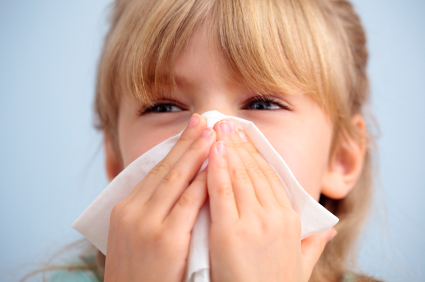Allergy
Mild allergies like hay fever are very common in the human population and cause symptoms such as red eyes, itchiness, and runny nose, eczema, hives, or an asthma attack. Allergies can play a major role in conditions such as asthma. In some people, severe allergies to environmental or dietary allergens or to medication may result in life-threatening reactions called anaphylaxis. Food allergies, and reactions to the venom of stinging insects such as wasps and bees are often associated with these severe reactions.
A variety of tests exist to diagnose allergic conditions. These include placing possible allergens on the skin and looking for a reaction such as swelling. Blood tests can also be done to look for an allergen-specific IgE.
Treatments for allergies include avoiding known allergens, use of medications such as anti-histamines that specifically prevent allergic reactions, steroids that modify the immune system in general, and medications such as decongestants that reduce the symptoms. Many of these medications are taken by mouth, though epinephrine, which is used to treat anaphylactic reactions, is injected.Immunotherapy uses injected allergens to desensitize the body’s response. < Definition from WIKI>

What kind of Symptoms in Allergy?
- Nose : Running Nose, Sneezing, Congestion
- Eye : Watery, Itchy, Redness
- Skin : Rashes, such as eczema
- Ear : Feeling of fullness, possibly pain, and Impaired hearing
- Internal Problem : Abdominal pain, Bloating, Vomiting, Diarrhea
 Allergy with Acupuncture?
Allergy with Acupuncture?
Acupuncture has also been claimed to influence the various activities of cells in the body, particularly via the transport, breakdown and clearance of “bioactive mediators.” These actions, along with the claimed effect of inhibiting an over-active immune system, are thought to result in anti-inflammatory effects on the body.
These anti-inflammatory effects are thought to decrease inflammatory diseases such as allergic rhinitis.
By Daniel More, MD, About.com Guide <Link>
